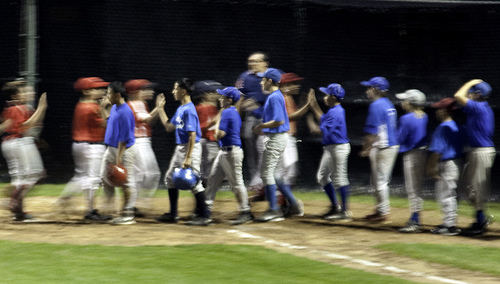When kids try new things, sometimes it’s a “fit” and sometimes a struggle.
So what’s a parent to do when they find that a child is floundering in a new activity? What if your son is in over his head? Or your daughter is not doing as well as either of you had hoped? What if they even fail outright?
Often, they’re tempted to give up. Just to quit. And with the busy schedule facing most families, supporting that decision can be a real temptation. But what’s the lesson from that? Quitting just makes it easier to quit again later, or, worse still, can stifle the urge to tackle future challenges.
When faced with failure at a new activity, another option is to help your child to take a lesson from the experience. Before they leave a troublesome or difficult activity behind, is there something that they can learn that will help them to do better the next time?
The topic of ‘my child’s failures’ is a tough one for some parents to look at. But here’s a hint: try hard to keep them just that — your kids’ failures.
[Tweet “Quitting makes it easier to quit again later or to avoid tackling future challenges.”]
If you’re concerned that their performance reflects on you, you’re right. It does. But the performance that most adults care about is the one that has to do with your child’s values and character. The child who picks herself up, dusts herself off and gets back into the game, shows a level of resiliency and confidence that is a credit to both of you.
No teacher, coach or fellow parent ever looked down on a parent whose child gave 100% effort. If your child isn’t talented in sports, but tries and gives his and demonstrated good sportsmanship, you’ll be regarded as a good parent.
Related articles





